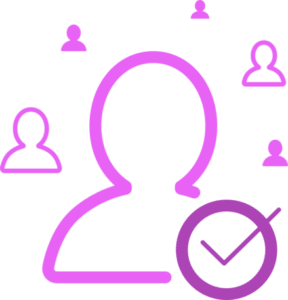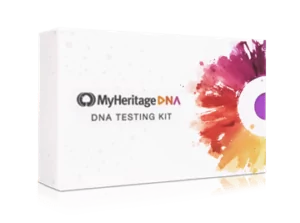I have already done a DNA test. How can I participate?
Upload your DNA data to MyHeritage for free. If you like, you can fill in the application form to provide extra information, but don’t forget to specify there that you have already taken a DNA test. You won’t receive a free DNA kit, but if you upload your DNA data you will be able to access and contact your DNA matches just like the other participants.
I applied to DNA Quest in the past, can I reapply?
If you applied in the past and were on the waiting list, you are welcome to apply again. If you applied before and were not approved due to not meeting eligibility criteria, please do not apply again. If you applied and were approved and received a free MyHeritage DNA kit, or uploaded your DNA data to MyHeritage as part of this program, there is no need for you to apply again; instead, just keep checking your DNA Matches on MyHeritage.
Who is eligible to participate?
All people above the age of 18 who were involved in an adoption anywhere in the world are welcome to apply.
Can people searching for non-adopted loved ones such as cousins, lost ancestors, etc., participate and receive free DNA kits?
No.
Can sperm donor children seeking their siblings participate?
They are welcome to sign up by filling in the application form, but at this stage of the project, they will not receive a free DNA kit. This may be considered in the future.
I was born from a non-paternity event but there was no adoption. Can I participate?
In the first phase of the project we want to limit the scope in order to order to maximize success of the limited number of free DNA kits to be given out. You are very welcome to sign up though, because future phases of this project may include you.
We are a family of several people seeking a child we had placed for adoption. Which of us should do the DNA test?
Testing one biological family member (e.g. parent or sibling) is sufficient. There's no need to test more family members, and taking only one test will allow more families to benefit from the project.
How will the committee select who will get the kits if there are more applicants than kits available?
This will be at the discretion of the committee, but generally the main criteria will be to select people who signed up first, people with special personal circumstances, and people who cannot afford to buy a DNA kit.
What happens if I apply, but don't receive the free DNA kit?
You will be notified by email and will be entered into a waiting list. You may receive a free DNA kit later if the project is extended.
What exactly will participants receive for free?
MyHeritage will send free DNA kits with free shipping, and participants will receive access to all features provided with the DNA kit, including receiving, exporting, and contacting DNA Matches, shared ancestral surnames and places, the Ethnicity Estimate, and the Chromosome Browser. MyHeritage subscriptions for accessing historical records, Record Matches, etc., will not be provided for free.
Can adoptees who purchased a MyHeritage DNA kit in the past receive a refund for it?
No.
Who owns the DNA?
The DNA is owned by the users (i.e. project participants), not MyHeritage. MyHeritage asserts no right to the DNA data. Participants can delete their DNA results and DNA sample at any time.
What about privacy?
Privacy is taken very seriously at MyHeritage and in this project. Information about applicants will not be shared with any 3rd party outside of MyHeritage. All details will be kept strictly confidential. Only the participants can access their DNA results. MyHeritage will never sell or license users’ DNA data to third parties.
Will my story be shared with media?
Only successful reunions where both sides of the match are interested in sharing their story, and explicitly agree to it, may be shared publicly, with their involvement.
Can I join anonymously?
Yes. Participants will need to provide a real name and address in the application in order to receive the DNA kit, but they can request to appear in the MyHeritage database with initials instead of their full name, and can later change the display name further for DNA Matching.
What will I find out from the DNA test?
You will receive DNA Matches with people who are related to you, who share a common ancestor with you. You will also receive an Ethnicity Estimate - this is an estimate of your ethnic origins from across thousands of geographic regions. Adopted people can use this to get an idea about the ethnicity of their biological parents.
How does this DNA database work?
MyHeritage has a robust DNA database of millions of people from all over the world, with thousands of new kits added each day. It includes people from the USA and from all over the world who are interested in finding their roots, as well as people looking for someone specifically. Selected applicants who receive a free DNA Kit under this project will be added to this database and matched against all the people currently in it. The best matches are sent every week by email and all matches can be reviewed on the MyHeritage website. Participants will then continue to be matched continuously to new people who are added daily. So even when there are no close matches initially, there are chances of receiving a life-changing match later. The focus that MyHeritage puts on adoptees and their biological family members means that there will be very good chances of finding the person you are looking for on MyHeritage, compared to other places.
I am adopted. Aren't there very small odds that I will find exactly the family member(s) I am looking for in this DNA database?
Numerous adoptees have successfully found their biological family members on MyHeritage. You don't need to match the precise person you are looking for. It can be enough to receive a close match with a sibling, a cousin or even a second cousin of the person you are looking for, who happens to be in the database, get in touch with them and ask them questions, and find your way to the relatives you are looking for. The odds of finding a relative of the person or people you are looking for are good, and increase every day thanks to the growing size of the database, improvements in the technology, and projects such as DNA Quest.
Is this DNA test accurate? Is it admissible in court?
The MyHeritage DNA test is extremely accurate when it comes to identifying matches with close relatives, such as parent/child, siblings or first cousins. It remains very accurate up to 3rd cousins. It is less accurate with more distant relationships such as 4th cousins, 5th cousins or more distant. The MyHeritage DNA test is not admissible in court. However, if this is required, people who match very closely on MyHeritage can take a separate DNA test outside of MyHeritage to produce results that are admissible in court. Because the MyHeritage DNA test covers 700,000 markers, if it finds a close relative with a large percentage of shared DNA, there is practically no risk of false-positives due to random coincidence.
After I get the results, if there is no "bingo", what should I do? Can I get help?
If you need help, MyHeritage and its advisors in this project will connect you to additional resources, such as DNA Angels who are volunteers who can help you understand your DNA results and make progress in your journey to find your family. Sometimes people luck out right away, but if often it takes more time, further study and perseverance until a family reunion can be made. We are here to help you. You will also be able to export your DNA data from MyHeritage and load it into other DNA services in order to maximize your chances of finding your family.















